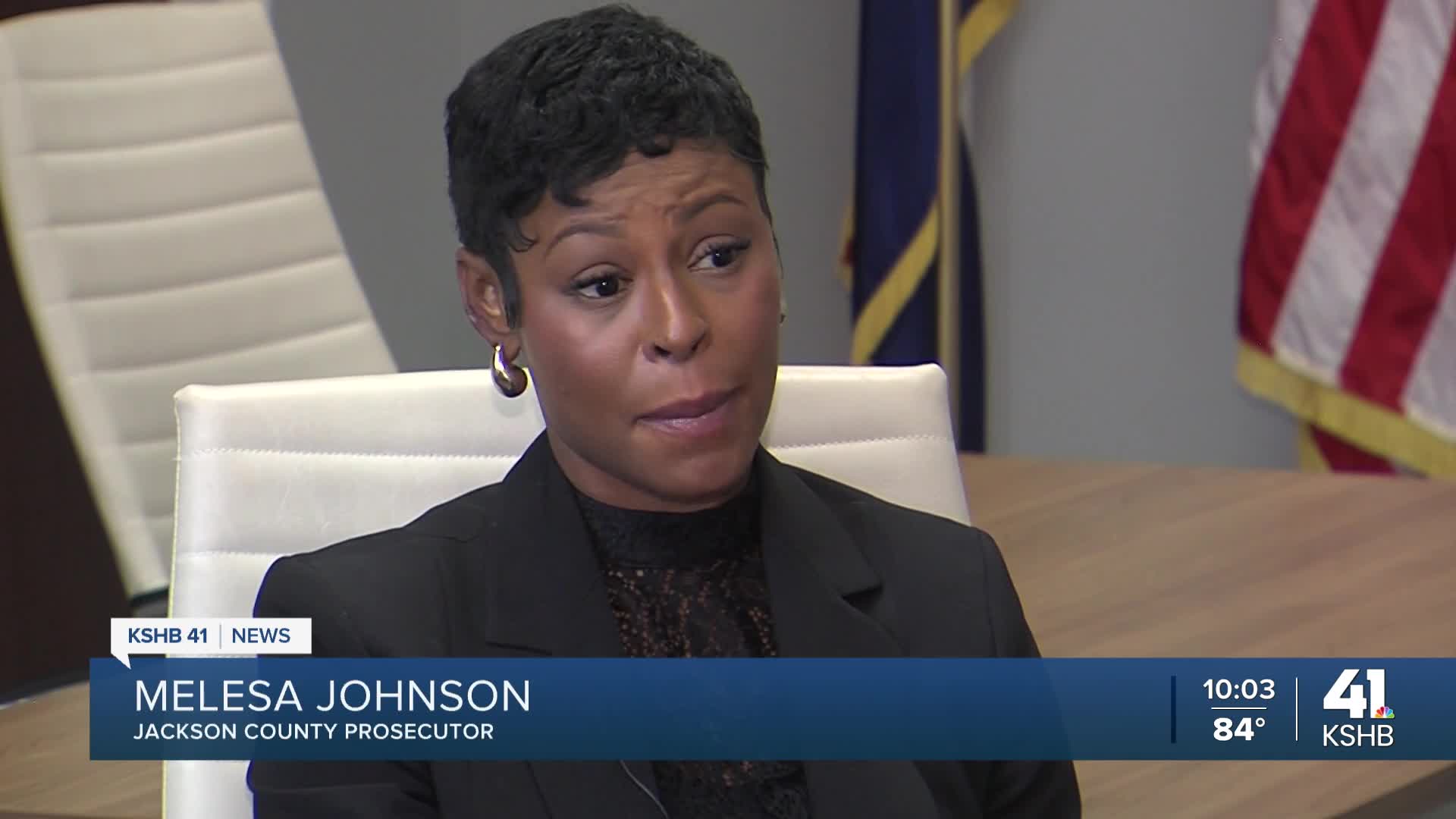KANSAS CITY, Mo. — It's been just over a year since Jackson County launched its "Save KC" program.
While the program was brought back under former Jackson County Prosecutor Jean Peters Baker, the current Jackson County Prosecutor, Melesa Johnson, helped develop the initiative when she was Director of Public Safety for Kansas City, Missouri.
Prosecutor Johnson met with KSHB 41's Alyssa Jackson to talk about SAVE KC's success and what challenges remain.
The program's participants are identified by an advisory board consisting of high-ranking law enforcement officers and community advocates involved in violence prevention.
The way Johnson described her involvement is an all-hands-on approach.

"I attend every implementation meeting every Friday," she said. "I've been at every single call in. I’ve spoken at the last two call-ins. I stay and I eat and I break bread with individuals we invite to the call-ins. I’m in constant communication with our crime strategies unit on how to handle different cases involving Save KC clients. We have a group audit coming soon. I’m providing pizza. I’m pretty in the weeds."
So far this year, 38 Save KC participants have attended a call-in and have chosen to engage in services including employment opportunities, housing, and relocation services, according to Johnson.
There are still individuals who haven't been able to stop participating in criminal activity.
In March, the prosecutor's office expanded its Crime Strategies Unit (CSU) to focus on holding SAVE KC members accountable, identifying crime patterns, and targeting repeat offenders, according to the office.
As of last month, CSU received a total of 38 cases involving SAVE KC defendants. The Jackson County Prosecutor's Office has filed charges in at least 28 of those cases.
"This is not an opportunity to get 50 chances at restoration," Johnson said. "These are coveted opportunities for you to show us you have a propensity to change. If you don’t, we're getting good results in the cases we prosecute involving Save KC individuals."
Comparing the data
Prosecutor Johnson's Office reports that non-fatal shootings and group-related violence are down since the launch of SAVE KC.
According to her office, group-related homicides involving violent groups identified by KCPD decreased by 40%.
Non-fatal shooting incidents involving SAVE KC-identified individuals decreased by 23%.
Non-fatal shootings involving violent groups identified by KCPD dropped by 62%.
While proud of the program's progress, Johnson acknowledged other root causes lead to crime, and KCMO is experiencing a deadly year.
"Coming off two weeks where we lost two young people under the age of 18, this is by no means a victory lap," Johnson said.
This weekend, Kansas City surpassed 100 homicides for the year.
Based on KCPD's crime data, this year's homicides involved 104 firearms.
That's because more than one firearm or weapon could be used in a crime.
Prosecutor Johnson clarified why the office uses the term "group violence" rather than gang violence.
Since there are certain statutory requirements for a group to be categorized as a gang, the Jackson County Prosecutor's Office is intentional about how they classify cases they want to leverage in court.
Johnson also attributes the language to a cultural shift.
She said: "There's no longer this era where there was just the Bloods and the Crips. Now, we're dealing with much smaller groups that are based on friends, associations, or where they live, or the block they live on or block they claim."
From "Focused Deterrence" to "Save KC"
SAVE KC started as a different program in 2014 called KC NoVa, the No Violence Alliance.
With changes in leadership, the program slowly came to a halt.
One of the major changes with the re-launch of the program is the community's involvement.
When individuals are invited to call-ins or meetings where Save KC advisors warn of enhanced enforcement and consequences for criminal activity, they also hear from victims of violence and those previously involved in criminal activity.

Then, call-in participants are given a choice to take advantage of the resources provided, including connections to housing support, job placement, food assistance, and mental health counseling.
Prosecutor Johnson said: "We understand if we want you to put the gun down, we have to be prepared to put something else in your hand."
Even with the program's recent progress, Save KC advocates understand change won't happen overnight.
Each day, advisors hope they're another step closer to saving KC.
Johnson said: "I know people in our community have dubbed this as a 'hug a thug' program. Listen, the harsh reality is we don't have enough jail space to incarcerate everybody. That wouldn't work anyway."
"How do we reduce recidivism? How do we lean into the understanding that six out of every 10 people sentenced to prison are coming home? How do we give them a quality safety net so they don't re-offend? And how do we get out in front of crime and prevent it before it happens in the first place?"
—
KSHB 41 reporter Alyssa Jackson covers portions of Johnson County, including Overland Park, Prairie Village and Leawood. Share your story idea with Alyssa.





